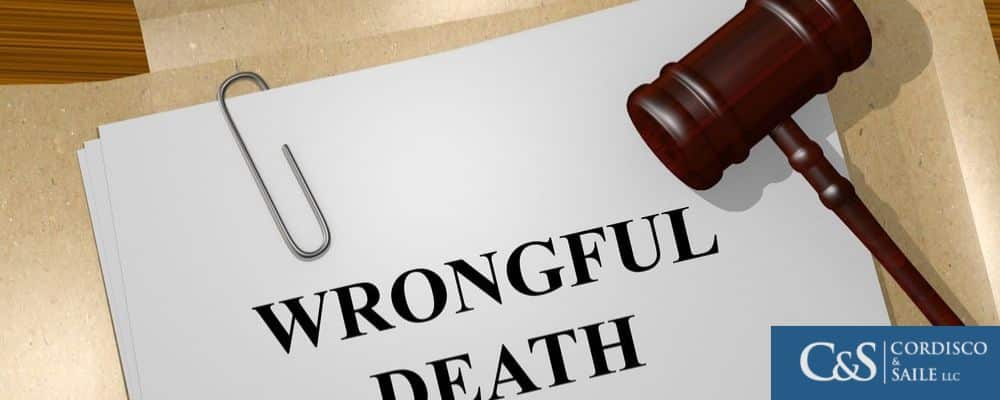In Pennsylvania, wrongful death distribution occurs either according to the deceased’s will or pursuant to the state’s intestacy statutes if there is no will. Intestacy laws, also called descent and distribution laws, are the statutory and case laws related to inheritance that detail which beneficiaries are entitled to property of an estate.
Below is a brief overview of how courts distribute wrongful death damages in PA and NJ, but note that distribution of damages in wrongful death cases can become very complicated and sticky when there are multiple beneficiaries involved. For details about what you are legally entitled to and for help with your particular case, call Cordisco & Saile LLC and request a free legal consultation at 215-642-2335.

How do courts distribute wrongful death settlements in PA?
Pennsylvania courts will distribute the damage award to wrongful death beneficiaries as per the following intestacy law priorities.
- If there was a surviving spouse and no children or parents – everything goes to the spouse.
- If there was a surviving spouse and a surviving parent but no children – the spouse will get the first $30,000 and half of the remaining settlement, the courts will divide the remaining portion of the settlement between the deceased’s parents equally.
- If there was a surviving spouse and surviving children – the spouse will get the first $30,000 and half of the remaining settlement, and if the children belong to the surviving spouse, the courts will divide the remaining portion of the settlement between the children equally.
- If there were surviving children and no spouse – the children will get the entire settlement, divided equally amongst them.
- If there were surviving parents and no children or spouse – the parents will share the settlement equally.
- If there were no surviving spouse, children, or parents – courts will divide the settlement amongst the deceased’s brothers, sisters, or nieces and nephews.
Do courts distribute survival action and wrongful death awards in the same way?
Courts handle survival action and wrongful death claims very differently. Wrongful death claims are on behalf of and distributed directly to the beneficiaries; the estate has no stake in them.
Conversely, survival claims are claims that “survive” the deceased. A personal representative of the estate files a survival action on behalf of the deceased/estate; at the conclusion of the case, the settlement will go directly to the estate.
The administrator will use the funds to satisfy the deceased’s debts, and then distribute the balance among the beneficiaries according to the deceased’s will. If no will exists, the administrator will distribute the remaining damages to the beneficiaries as per the state’s intestacy statutes.
How do courts distribute damages if both survival and wrongful death actions exist?
In many cases, the administrator will file both a survival action and a wrongful death claim. Pennsylvania allows this, but neither state allows for the duplication of damages. The courts will decide how to apportion the settlement at the conclusion of the case.
Here is an example to illustrate how the damages might be distributed. For example, a truck driver who fell asleep at the wheel kills a man. The deceased has a will that leaves everything to his wife. The estate files a survival action and a wrongful death claim against the trucking company for negligence. The case settles for $2 million, and the courts allocate half the award to the survival action and the other half to the wrongful death claim.
The administrator then will distribute $1 million to the beneficiaries as per the intestate laws for the wrongful death claim. Next, the administrator will take $1 million from the survival action, pay the creditors and inheritance tax, and then give the remaining balance to the wife, as per the deceased’s will.
Where can I get solid answers about my wrongful death case?
If all of this sounds complicated – that is because it is. If you have a pending wrongful death claim, we highly recommend speaking directly to an attorney to ensure you know what to expect and what you may be entitled to receive.
To talk to a wrongful death attorney that handles cases in both PA and NJ, contact Cordisco & Saile LLC at 215-642-2335 for a free consult.






